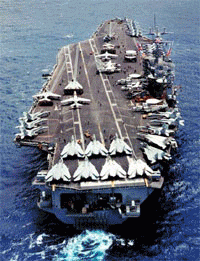Certified Marine Chemist (CMC)
There are neither ships too large nor tunnels too small for our Certified Marine Chemists. We climb and crawl to inspect them all:
confined spaces
- pits
- tanks
- vaults
- voids
enclosed spaces
- boiler rooms
- engine rooms
- pump rooms
hollow structures
- masts
- rudders
- skegs
- pipelines

And, Marine Chemist Service is one of the few remaining companies that still tests for Tetraethyl Lead (TEL)/Tetramethyl Lead (TML) in storage tanks previously containing leaded gasoline.
Our Marine Chemists are certified by the National Fire Protection Association (NFPA) and are dedicated to providing the highest standards of professional service to the Maritime and Petroleum industries. Part of our function is to inspect and certify areas as being Atmosphere Safe for Workers and/or Safe for Hot Work. Without a doubt, we are very concerned about the preservation of life, health and property.
Whether on your vessel or in your construction/repair “yard”, all marine inspections are performed in accordance with NFPA 306 and 29 CFR 1915, and official Marine Chemist Certificates are issued upon completion. Similarly, Certificate of Inspections are written for land-based confined spaces (e.g. AST’s, UST’s) at refineries, petroleum terminals and other storage facilities. These inspections are conducted utilizing NFPA 306, 29 CFR 1910.146, and API 2015 requirements and guidelines.
The expertise of our CMC’s extends beyond inspecting and certifying potentially dangerous areas. We are also available for classroom instruction in Shipyard Competent Person and Fire Watch Training, customized written confined space entry programs and annual program reviews, and consultation. We look forward to helping you any way we can with your more challenging safety concerns.
The catalyst for other divisions at Marine Chemist Service, and hence our company name, came from this original department. And since those early years mentioned in our corporate history, MCS has grown to having one of the largest groups of NFPA Certified Marine Chemists in the USA. Though our territory is primarily the mid-Atlantic states, we have traveled easterly to Bermuda and Puerto Rico, and to the west coast, Alaska and Japan in the opposite direction. Our goal is to remain true to our mission of helping your employees maintain safe work practices anywhere in the world.
Since 2003 when diesel fuel, JP-5 and other TLV’s were adopted, the maritime and petroleum industries became dependent on photoionization detectors (PID). Though PID technology can be complicated, a free book entitled “Theory and Application of Direct-Reading Photoionization Detectors (PIDs)” can be obtained by emailing RAE Systems and typing “PID Book” in the subject line.
